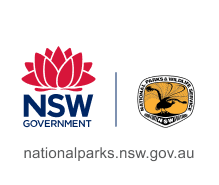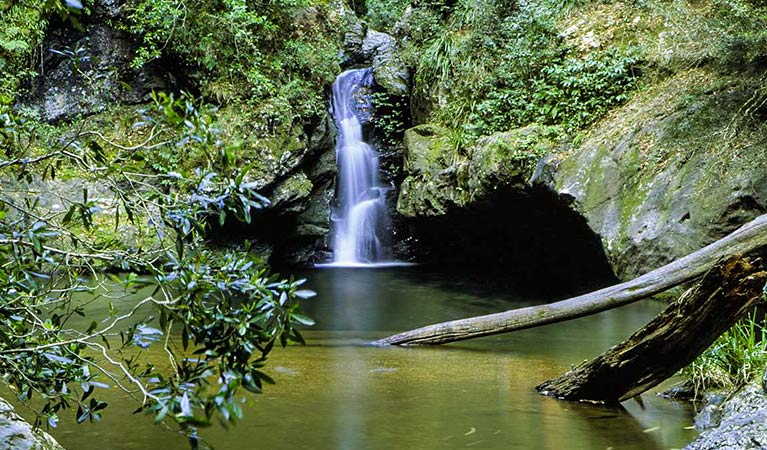Potoroo Falls walk
Tapin Tops National Park
Overview
Take a walk along Potoroo Falls walk which leads from the picnic area through rainforest to the beautiful Potoroo Falls, with its tranquil swimming hole.
- Where
- Tapin Tops National Park in North Coast
- Distance
- 0.9km return
- Time suggested
- 15 - 30min
- Grade
- Grade 4
- What to
bring - Drinking water, hat, sunscreen, suitable clothing, sturdy shoes, insect repellent
From Potoroo Falls picnic area, follow Potoroo Falls walk around 1km upstream along Little Run Creek to the scenic waterfall and swimming hole.
At the start of the track, you’ll spot the largest recorded watergum in New South Wales, not to mention many species of rainforest trees and interesting plant life and wildlife along the way.
As the route follows the creek, it involves some rock-hopping, so be prepared for wet feet and a bit of splashing. Don’t forget to take your swimming gear for a dip at the beautiful swimming hole – it’s the perfect place for cooling down when the weather is hot.
Also see
-

Potoroo Falls picnic area
Potoroo Falls picnic area is well-equipped with sheltered tables, wood barbecues and toilets. It’s a great place to enjoy a bite after you’ve walked to Potoroo Falls and had a splash in the swimming hole.
Map
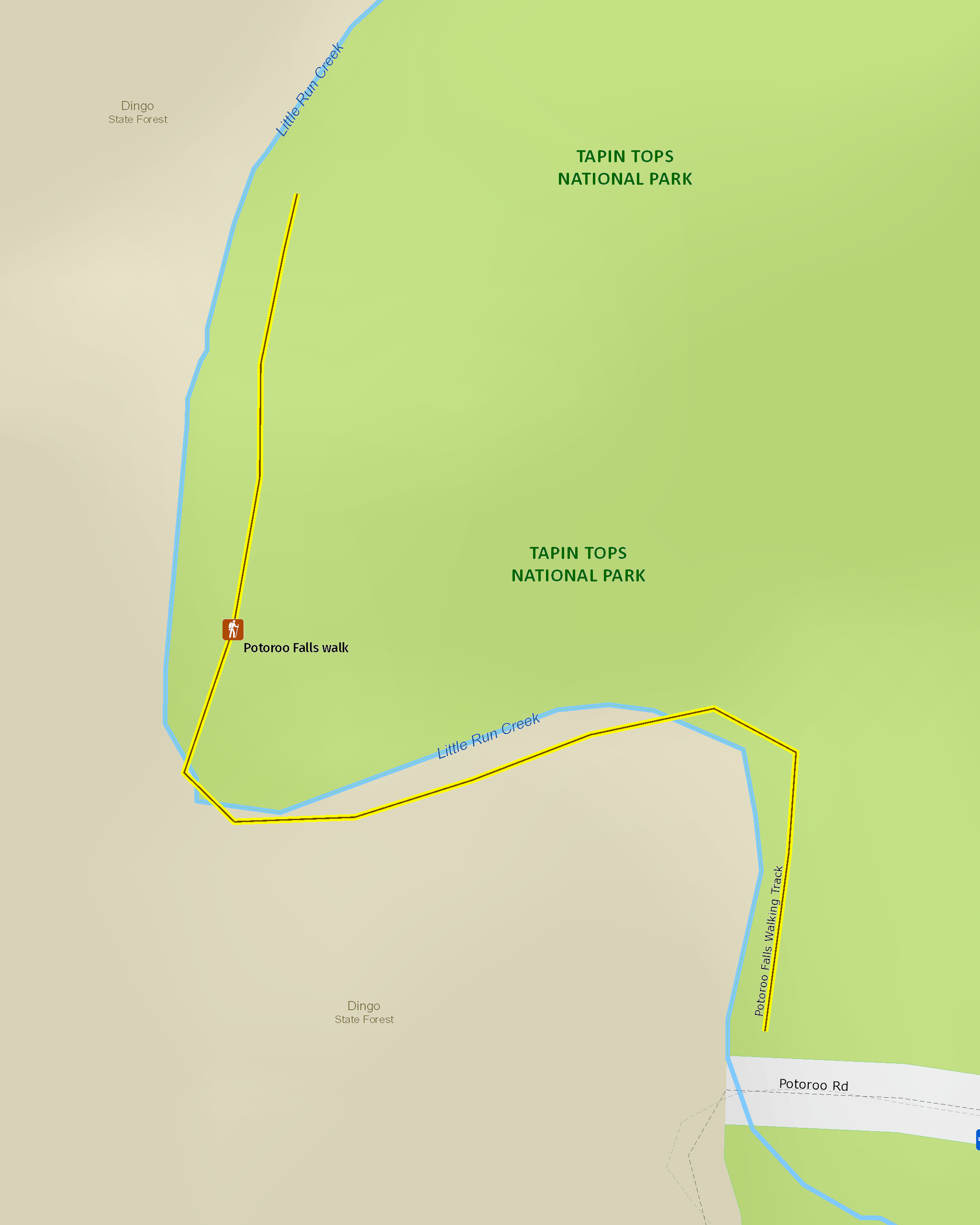
Map legend
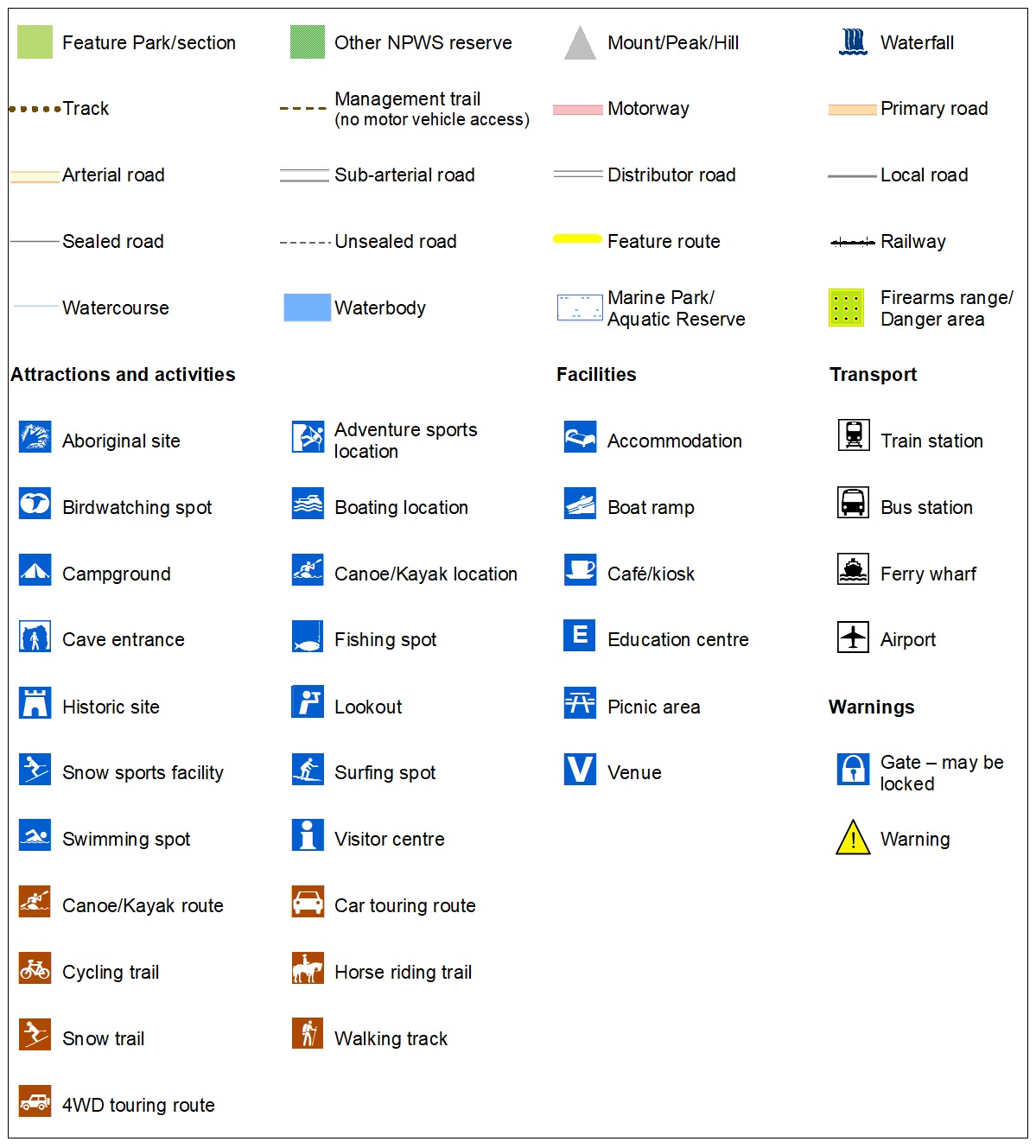
Local alerts
For the latest updates on fires, closures and other alerts in this area, see https://uat.nswparks.cloud/things-to-do/walking-tracks/potoroo-falls-walk/local-alerts
General enquiries
- National Parks Contact Centre
- 7am to 7pm daily
- 1300 072 757 (13000 PARKS) for the cost of a local call within Australia excluding mobiles
- parks.info@environment.nsw.gov.au
Park info
- in Tapin Tops National Park in the North Coast region
Tapin Tops National Park is always open but may have to close at times due to poor weather or fire danger.
Visitor info
All the practical information you need to know about Potoroo Falls walk.
Maps and downloads
Learn more
Potoroo Falls walk is in Tapin Tops National Park. Here are just some of the reasons why this park is special:
A botanist’s dream
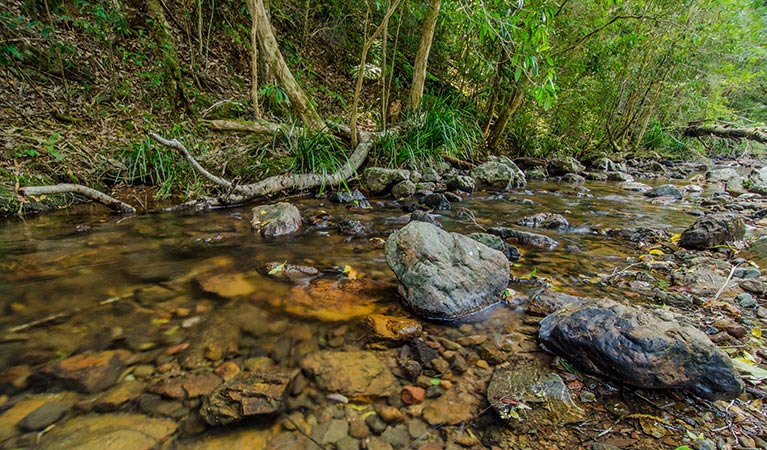
An impressive 20 different forest types have been mapped within the park, providing a fantastic variety of unique plants. The temperate, subtropical rainforest is dominated by corkwood, crabapple, sassafras and booyong with majestic yellow carabeen at higher altitudes. There’s also myrtle-dominated rainforest and viney scrub. This diverse flora habitat has several threatened plants species, such as the endangered climbing vine and a rare, vulnerable orchid. A variety of different eucalypts can be seen in Tapin Tops, including brushbox, tallowwood, blue gum, bloodwood, silvertop stringybark and grey gum.
- Mountain Brush circuit This easy walk through the rainforest is a treat for birdwatchers and botanists alike with its lively array of interesting plants, birds and wildlife
- Potoroo Falls walk Take a walk along Potoroo Falls walk which leads from the picnic area through rainforest to the beautiful Potoroo Falls, with its tranquil swimming hole.
- Rowleys Rock lookout From Rowleys Rock lookout in Tapin Tops National Park, you can stand over 1000m above sea level and enjoy astonishing scenic views out over the park, Taree and beyond.
A long, rich, Aboriginal culture
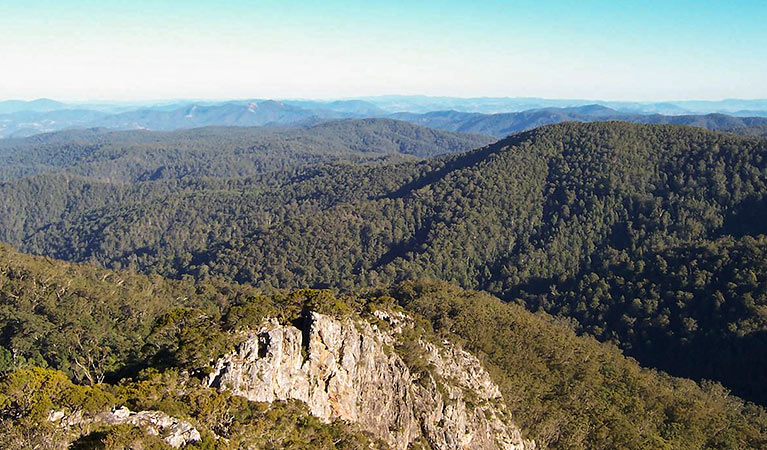
Tapin Tops National Park is part of the traditional lands of the Biripi People and this incredible landscape has helped them form their identity and spirituality. The name, ‘Tapin’, means ‘dingo’ in their language, as the park provides habitat to native wild dingos.
Part of our forestry past
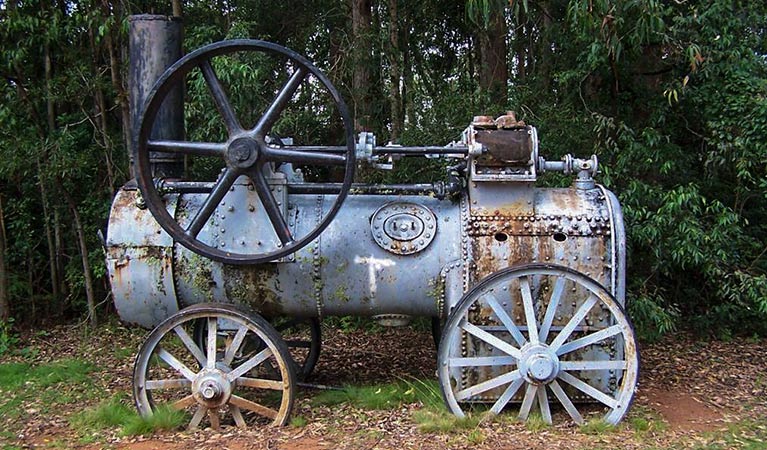
Prior to becoming a national park, this area was part of Bulga and Dingo state forests, which were logged over the last 80 years. In the campground, you can see fascinating relics of road building and forestry operations that date back to pioneering days.
So many amazing animals
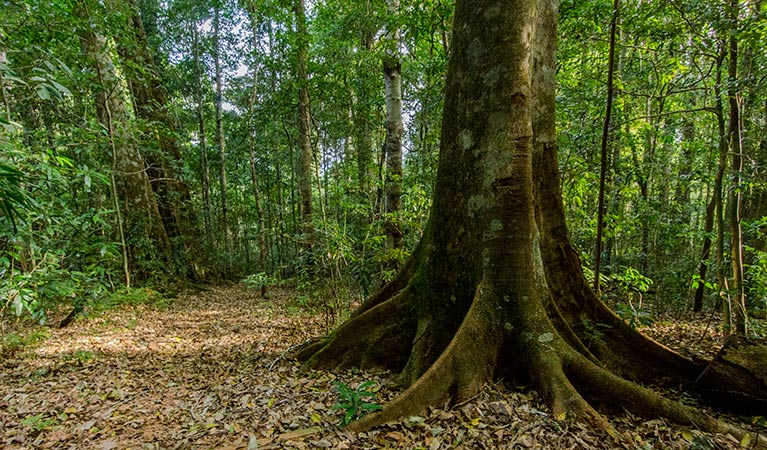
Birdwatchers will want to keep their eyes out for the black and gold regent bowerbird, the green catbird, and the topknot pigeons resting in the treetops. Three threatened species of owls have been recorded here (sooty, powerful and masked owls), although if you spot these rare creatures you are lucky indeed, as they are hardly ever seen. During the day, listen out for the superb lyrebird’s call. Other incredible animals you might be lucky enough to encounter here include the parma wallaby, the spotted-tailed quoll, or brush turkeys scratching on the forest floor. Koalas are present feeding at night, moving between trees in search of the succulent leaves from the eucalypt. They then spend most of the day sleeping in the extensive canopy.
- Mountain Brush circuit This easy walk through the rainforest is a treat for birdwatchers and botanists alike with its lively array of interesting plants, birds and wildlife
